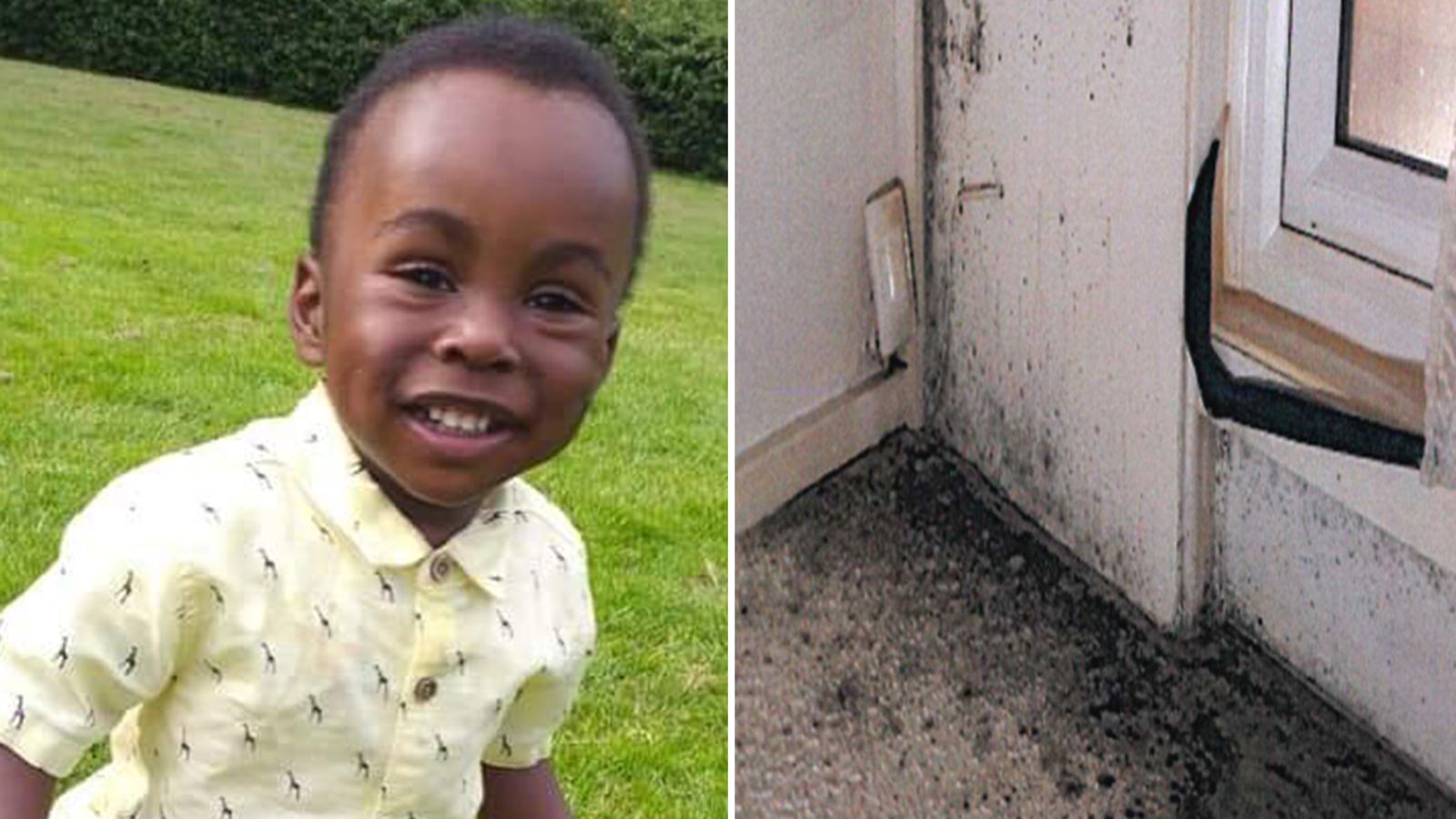A watchdog has found “significant failings” in the running of the housing association which owned the Rochdale estate where two-year-old Awaab Ishak died.
The Regulator of Social Housing (RSH) found that Rochdale Boroughwide Housing (RBH) displayed a lack of urgency in dealing with damp and mould across its properties, even after Awaab’s death in December 2020 from a respiratory condition caused by mould in the flat where he lived with his parents in Greater Manchester.
A coroner found in November that “action to treat and prevent the mould was not taken”, and said that the case should be “a defining moment” for the housing sector.
The latest failings reported by the RSH go beyond those in the coroner’s verdict, and “as a result, RBH has breached the regulator’s consumer and governance standards”.
RSH will now take action to ensure the social housing association “addresses these failings and puts things right for its tenants”, and wants all social landlords to heed its findings.
According to the regulator, RBH waited nearly two years after Awaab’s death to check for damp and mould in other homes on the estate. When they did eventually check, they found hundreds of tenants living with the problem.
Wider failings within the company also meant that RBH gave the regulator inadequate information about damp and mould shortly after Awaab’s death, undermining their credibility and exposing significant failings in the way it treats damp and mould.
Man arrested on suspicion of attempting to kidnap three teenage girls in Salford
Father found dead in Wigan was shot and attacked with acid, say police
Family of Awaab Ishak killed by mould in Rochdale flat say racism played part in his death
The housing association also made incorrect assumptions about the cause of damp and mould in Awaab’s home and failed to act to resolve the issues.
It also did not treat Awaab’s family with fairness and respect, and the regulator said it does not have confidence that RBH is treating other tenants fairly.
‘This is unacceptable’
Fiona MacGregor, RSH’s chief executive, said: “Our investigation reveals significant failures in the way RBH manages damp and mould in its homes, resulting in harm to tenants.
“The tragic death of Awaab Ishak should have led to action to establish wider risks, but RBH failed to respond quickly or effectively.
“This is unacceptable. RBH needs to address the issues we have found and we will take further action if it fails to do so.
“Our judgment sends a clear message to social landlords that they must deal with damp and mould as the serious hazards that they are, treat tenants with respect, and take their concerns seriously.”
RBH said its new damp and mould taskforce has significantly accelerated remedial work, new translation tools are improving communication with tenants and a £1.2m programme is under way to improve ventilation.
‘We must honour Awaab’s memory’
A spokesman said: “Today’s announcement by the regulator recognises that failure and the mistakes we have made.
“We accept this judgment and we are already working closely alongside the regulator to address their concerns and meet their expectations.”
Please use Chrome browser for a more accessible video player
Housing secretary Michael Gove, who has been fiercely critical of the failings of social housing providers, welcomed the report, saying “RBH failed – and it meant that Awaab Ishak needlessly and tragically lost his life. The regulator’s judgment today reflects that.
“I’ve seen and heard first-hand the issues tenants continue to face in Rochdale. But this isn’t just an issue in Rochdale – it is clear from today’s English Housing Survey there are very serious issues with the quality of homes in this country.
“We must honour Awaab’s memory, so I am looking at new measures – including legislation – that will go further to deliver urgent action when people complain about damp and mould and make sure the rights of tenants are respected.”










